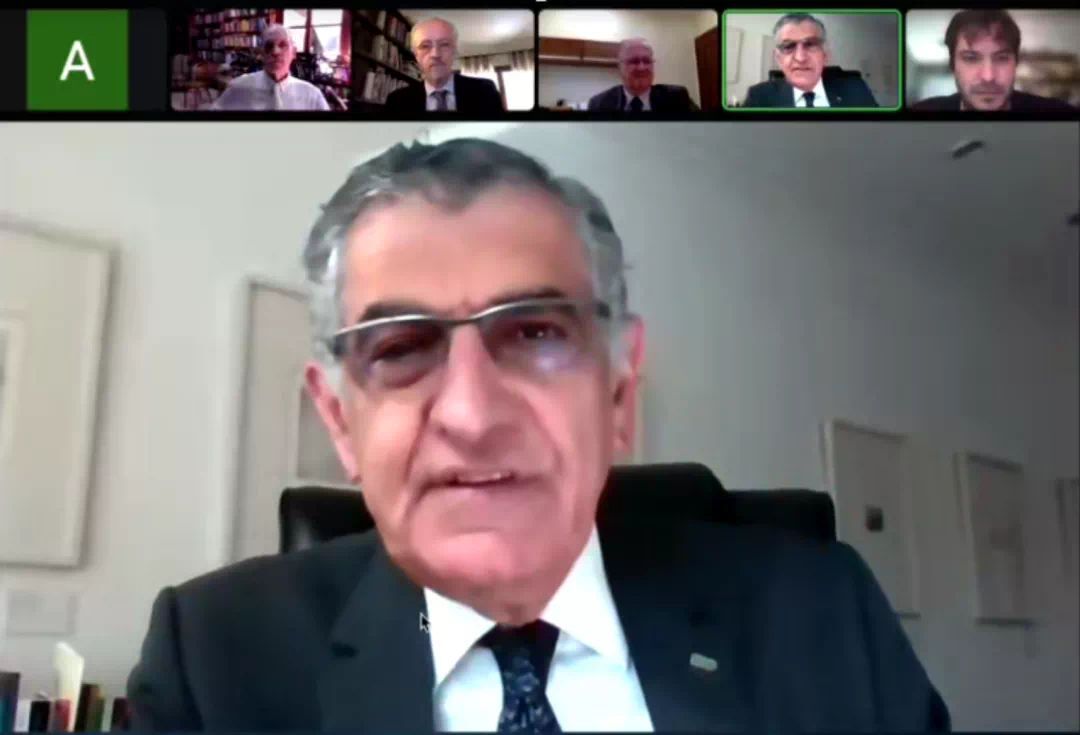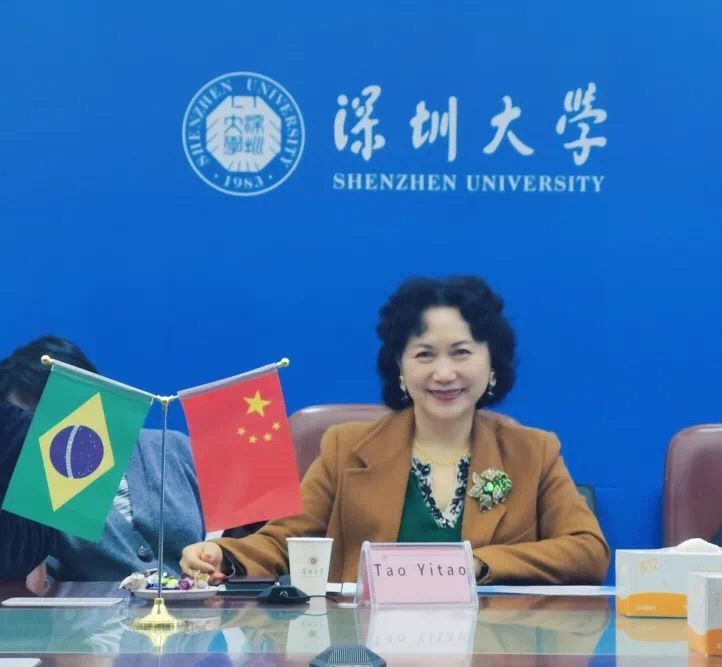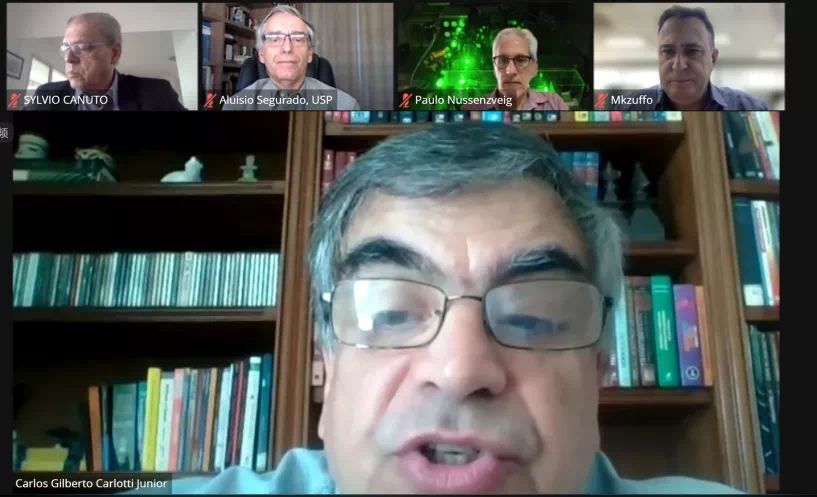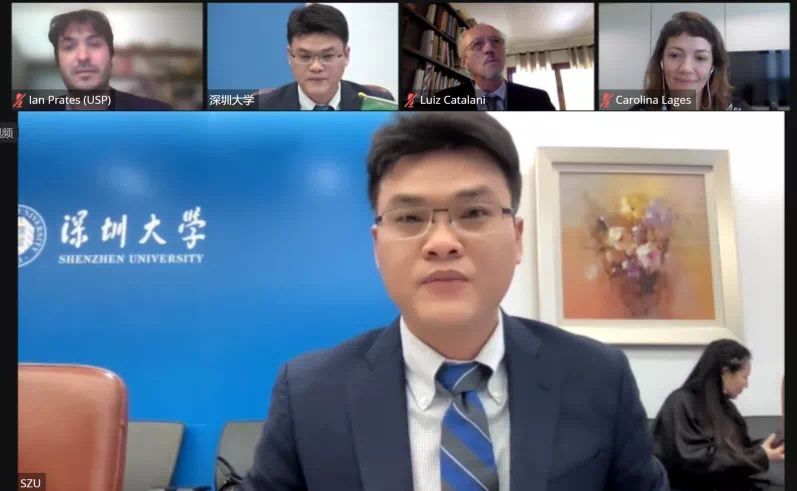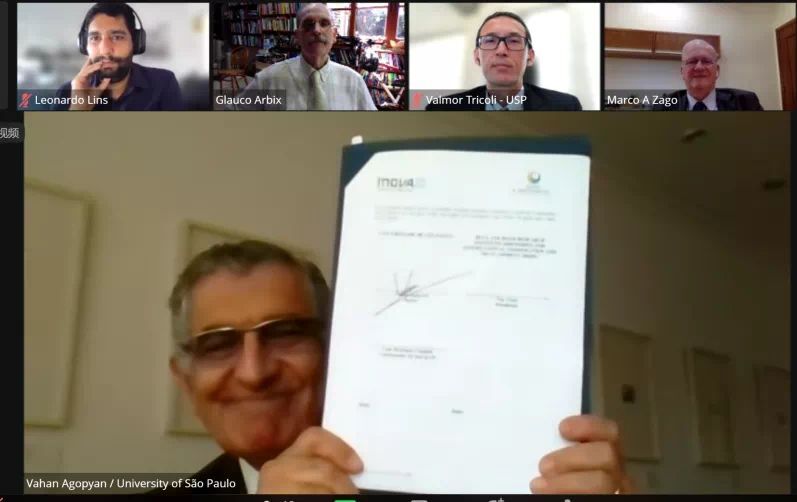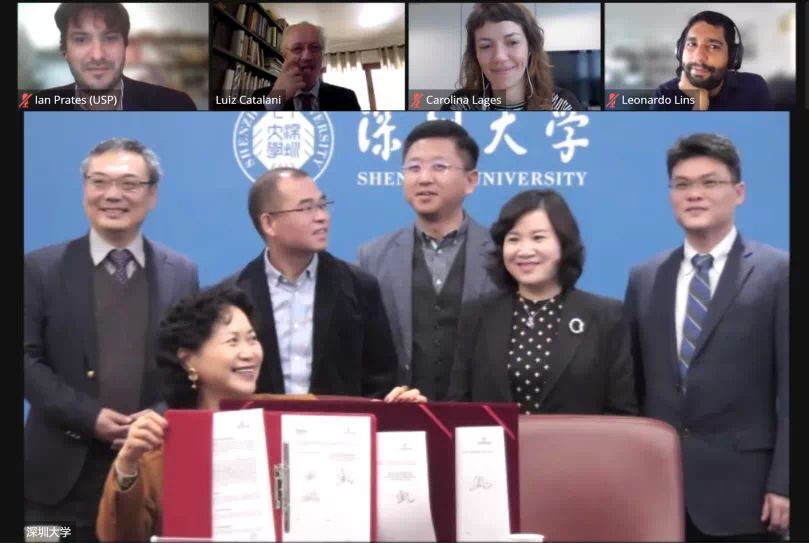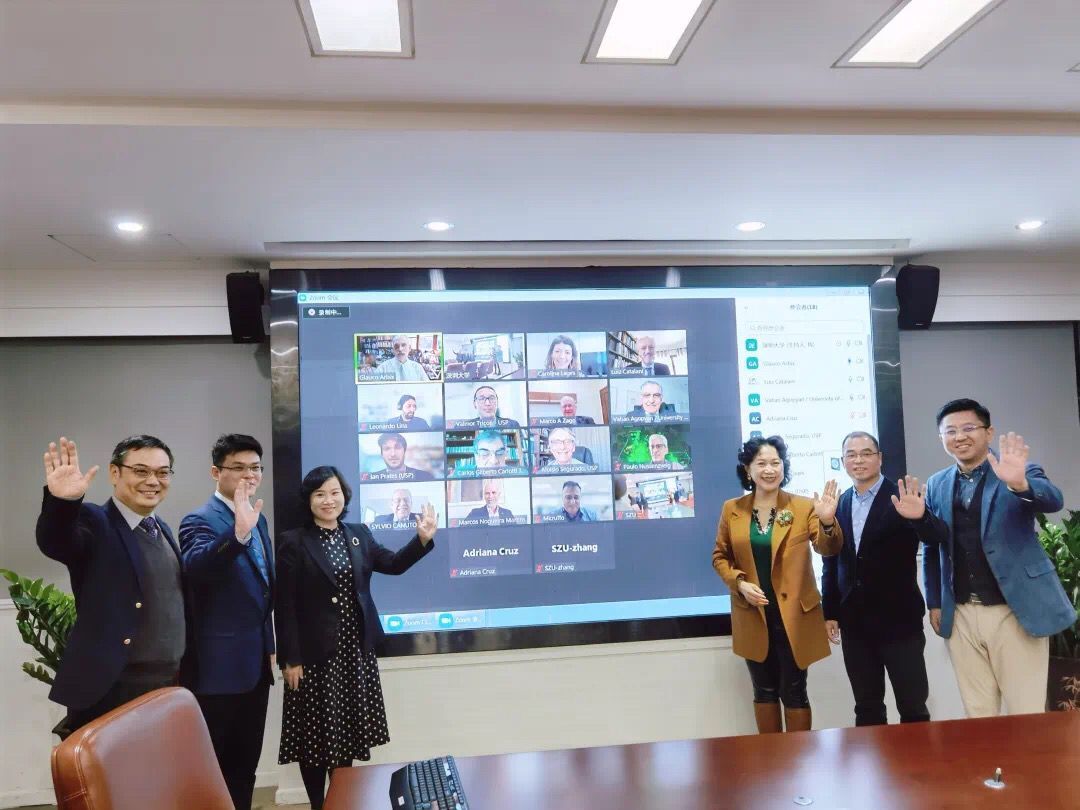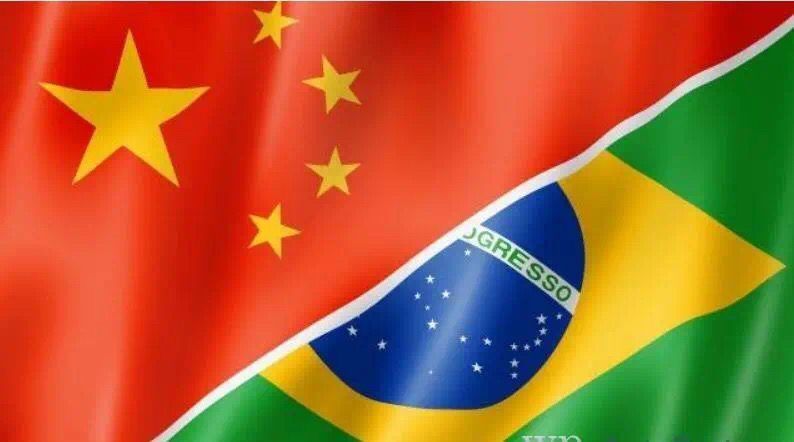
The Belt and Road Research Institute (Shenzhen) for International Cooperation and Development (BRRI) and the University of São Paulo (USP) signed a cooperation agreement during a video conference on January 17, 2022 at 19:30 Beijing time (9:30 Brazil Time). Among the attendees from BRRI were Prof. Zhang Xiaohong, Vice President of Shenzhen University (SZU), Prof. Tao Yitao, Director of China Center for Special Economic Zone Research (CCSEZR) and BRRI, Prof. Jiang Jianwu, Deputy Director of Shenzhen University International Office, Prof. Pan Yanchun, President of College of International Exchange, Shenzhen University, Dr. Han Jun, President Assistant of BRRI, and Dr. Yun Wenjie, Research Fellow of BRRI. Among the online attendees were Vahan Agof, President of the University of São Paulo, Carlos Gilberto, the successive President of USP, Valmore Trekoli, Director of the International Exchange Office, Maroc Antonio, President of the State Institute of São Paulo, Catalani Luiz, Director of Innovation Center and Glaucus, Director of the Center for Sino-Brazilian Studies
Vice president Zhang Xiaohong expressed her great pleasure to witness the signing ceremony, which marked a new stage of cooperation between USP and BRRI. She briefly introduced the outcomes BRRI and SZU have made in external cooperation, and praised that BRRI has become a global think tank with international clout, focusing on special economic zone research and “Belt and Road” building. She ended with a poem by Brazilian poet Alessandra Nascimento, “True friends are forever/because/no matter the distance/in the heart will always be close.”
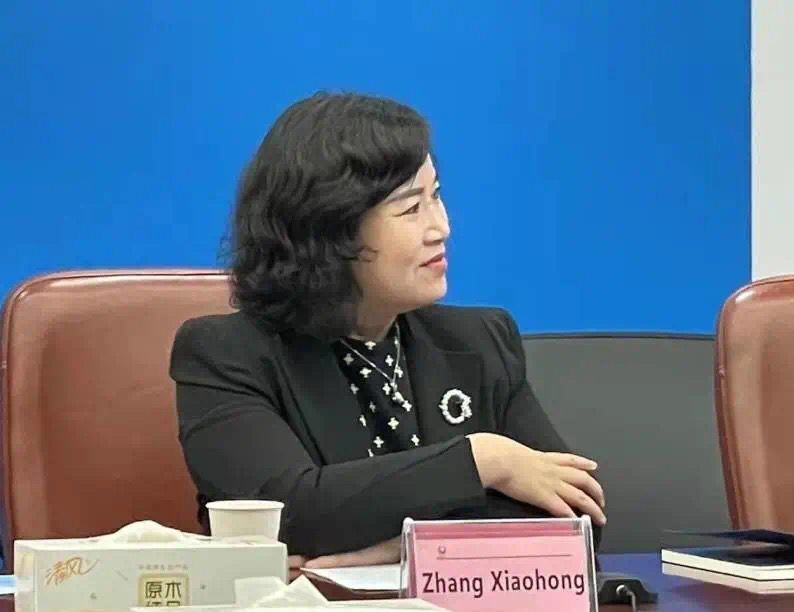
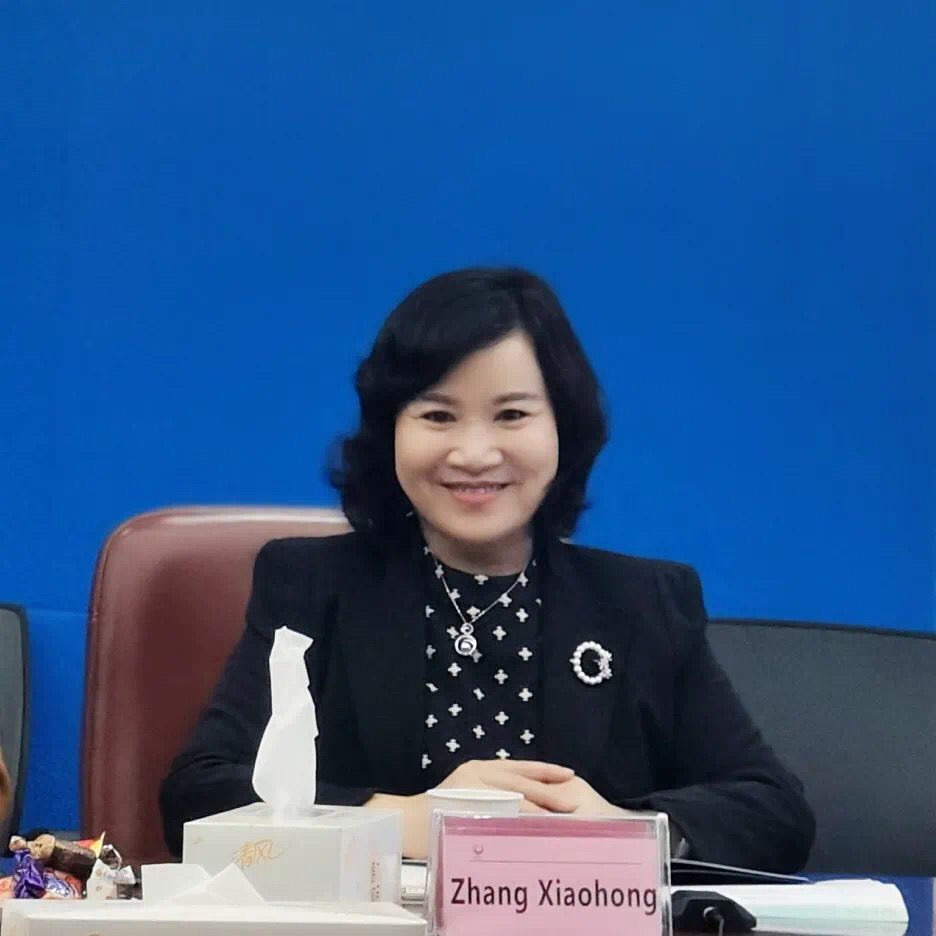
Vice president Zhang Xiaohong
Vahan Agof, President of the University of São Paulo, extended his sincere greetings to Vice President Zhang Xiaohong and his heartfelt thanks to President Tao Yitao and BRRI for facilitating this conference. President Vahan Agof gave a brief introduction to the University of São Paulo, and expressed his anticipation for face-to-face communication with everyone present here. He wished today’s signing could get off to a flying start to exert a positive influence on future collaboration. President Vahan Agof hoped that through this signing, both sides can live up to their complementary strengths and share information to enhance all-round cooperation and communication in resource utilization, and improve strategic synergy levels and innovation capability to realize new leaps in strategic development.
President Vahan Agof
President Tao Yitao expressed her joy to witness the virtual signing ceremony between BRRI and USP, which she believed would be significant to both sides, as it not only marks the commencement of formal cooperation, but also indicates that the cooperation will be effectively implemented and promoted under the framework agreement. She introduced BRRI in detail and expected board cooperation and a promising future for both sides in the days to come.
President Tao Yitao
Carlos Gilberto, the successive President of USP, Maroc Antonio, President of the State Institute of São Paulo, Catalani Luiz, Director of Innovation Center, and Glaucus, Director of the Center for Sino-Brazilian Studies, shared their opinions that the newly-built partnership will bring more possibilities in the future, and they fondly anticipate the cooperation.
Successive President Carlos Gilberto
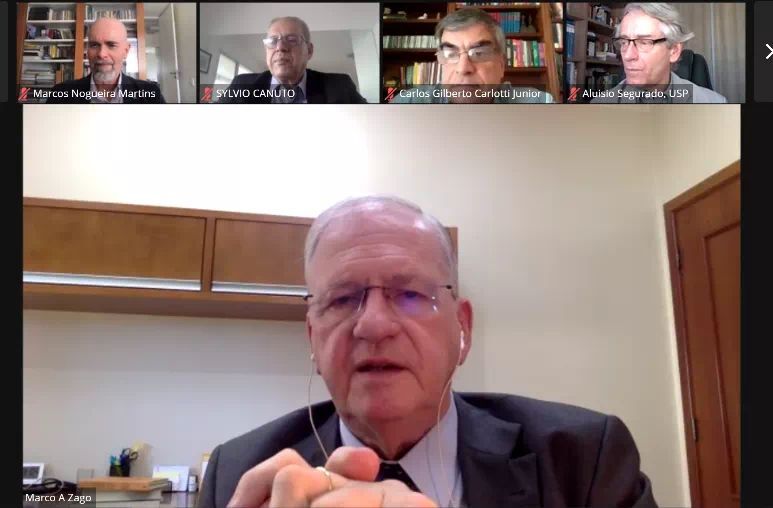
President Maroc Antonio
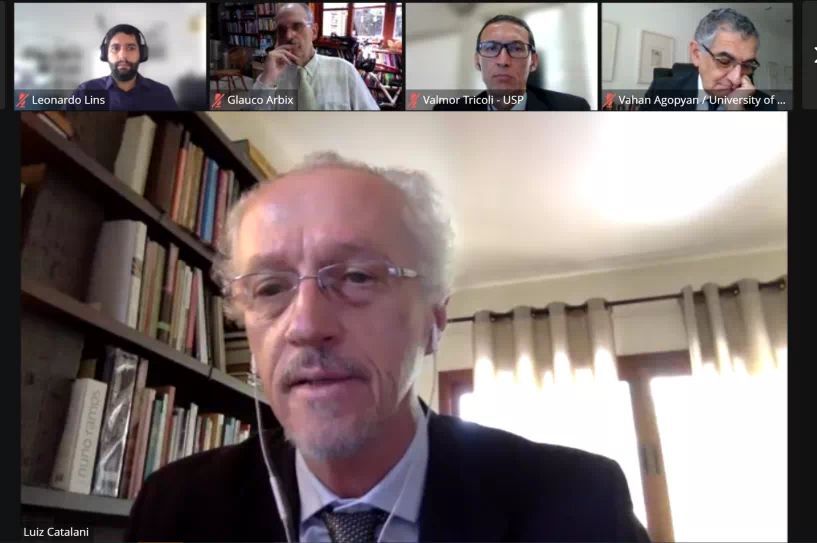
Director Catalani Luiz

Director Glaucus
Prof. Jiang Jianwu expressed his gratitude to President Tao Yitao for her effort in building a bridge between SZU and USP. He introduced SZU's programs that have notched milestones in internationalization, and wished for fruitful outcomes for both sides. Prof. Pan Yanchun detailed the admission requirements for international students and scholarship policies. Dr. Yun Wenjie, Research Fellow of BRRI, analyzed the possible direction of cooperation and gave more insights and possibilities for next step.
Deputy Director Jiang Jianwu
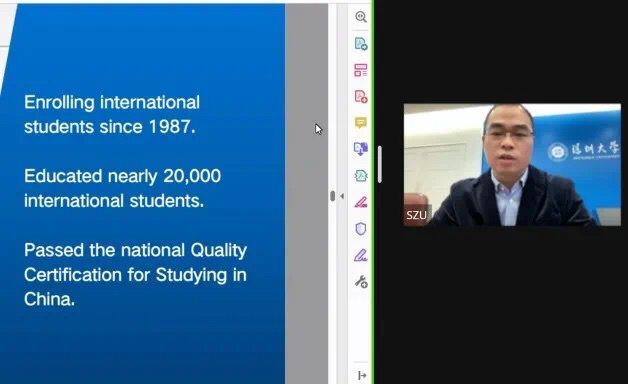
President Pan Yanchun
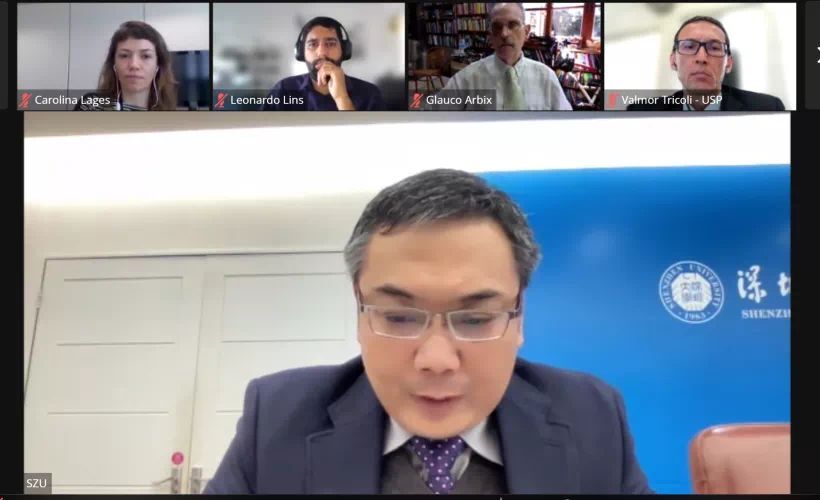
Dr. Yun Wenjie
After the conference, President Vahan Agof and President Tao Yitao signed a memorandum of cooperation between BRRI and USP in Chinese, English and Portuguese. Vice President Zhang Xiaohong, President Tao Yitao, Chinese attendees, President Vahan Agof, President Carlos Gilberto and other professors took a group photo.
Online signing of agreement is completed
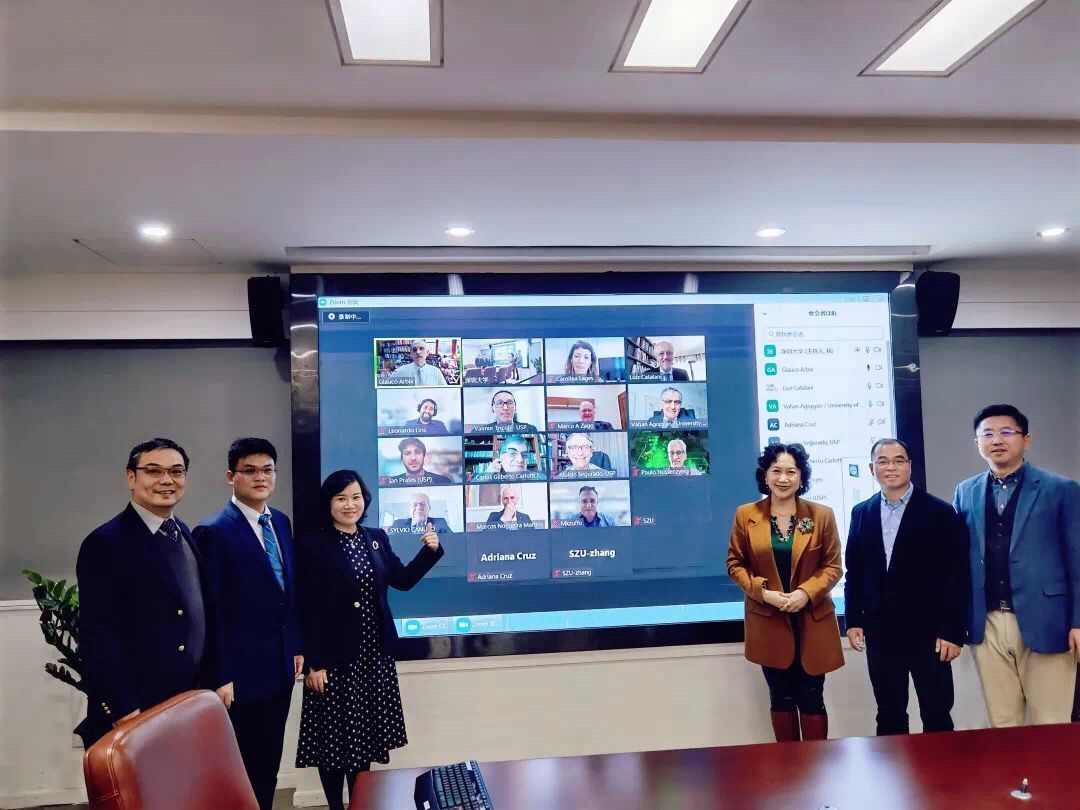
Group photo of the two sides
As a new breed of private think tank jointly sponsored by Wu Xiaolan Charity Foundation and CCSEZR, a key research institute of humanities and social sciences under the Ministry of Education (MOE) of China, BRRI will stay true to our original aspiration, work hard for our mission, and blaze the trail to build a bridge between SZU and the world.
About the University of São Paulo
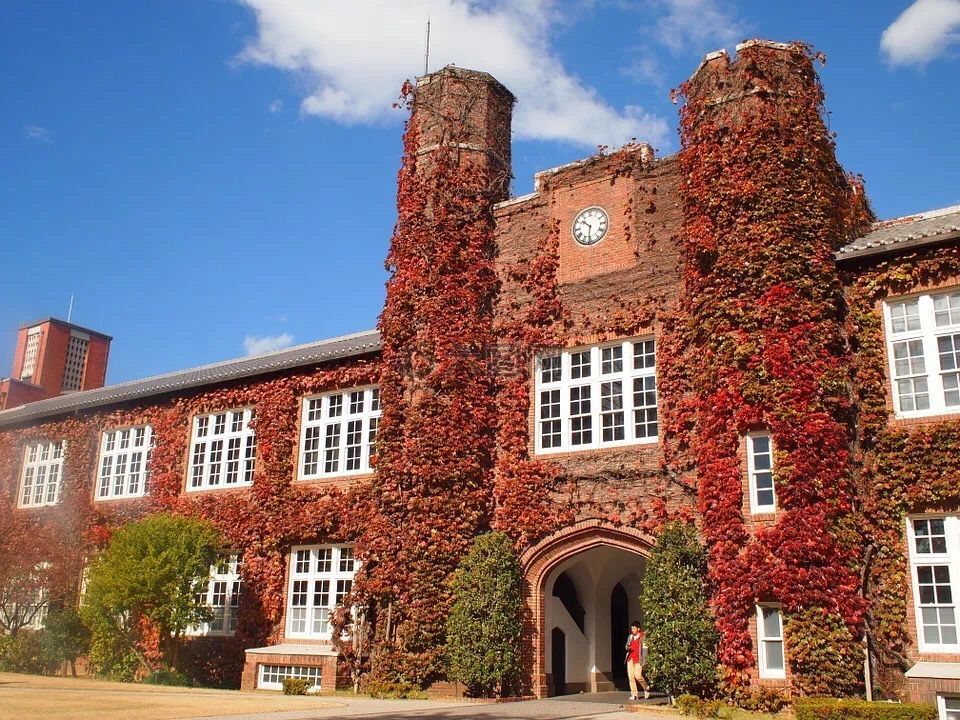
The University of São Paulo (Portuguese: Universidade de São Paulo, USP) is one of four public universities run by the state government of São Paulo, Brazil, along with the State University of Campinas (Unicamp), São Paulo State University (UNESP), the Virtual University of the State of São Paulo (Univesp). It is the largest Brazilian public university and one of the most important universities in Ibero-America, in the Portuguese-speaking world and one of the most prestigious in the world. USP is one of the largest higher education institutions in Latin America. It is composed of 42 teaching and research units distributed over 10 campuses: São Paulo (with three campuses), Bauru, Lorena, Piracicaba, Pirassununga, Ribeirão Preto, Santos and São Carlos. The main campus in São Paulo is called Cidade Universitária Armando de Salles Oliveira, with an area of 3.7 million square meters.
According to the SCImago Institutions Rankings (SIR) World Report 2020, USP is ranked No.61 among international teaching and research institutions. USP has the largest undergraduate and graduate quotas among Brazil’s public universities, and has more masters and doctors than other universities in the world. It contributes half of the scientific research productivity in the state of São Paulo, equaling to over 25% of that in Brazil. Brazil contributes about 2% of the world's scientific research productivity, where 0.5% can be attributed to USP. In addition, USP accounts for 25% of graduates programs with Capes scores of 6 and 7 (the highest level) in Brazil. The proportion is 55% if only the São Paulo region is considered.
Since the inception in 1934, USP has played an important role in Brazilian history: 13 of the 43 Brazilian presidents graduated from the university, such as sociologist Fernando Henrique Cardoso and lawyer Jânio Quadros. Jânio Quadros and other 10 former presidents graduated from the Faculty of Law, which has produced 53 ministers for the Brazilian Supreme Court (STF) since its establishment 108 years earlier than the University itself.



